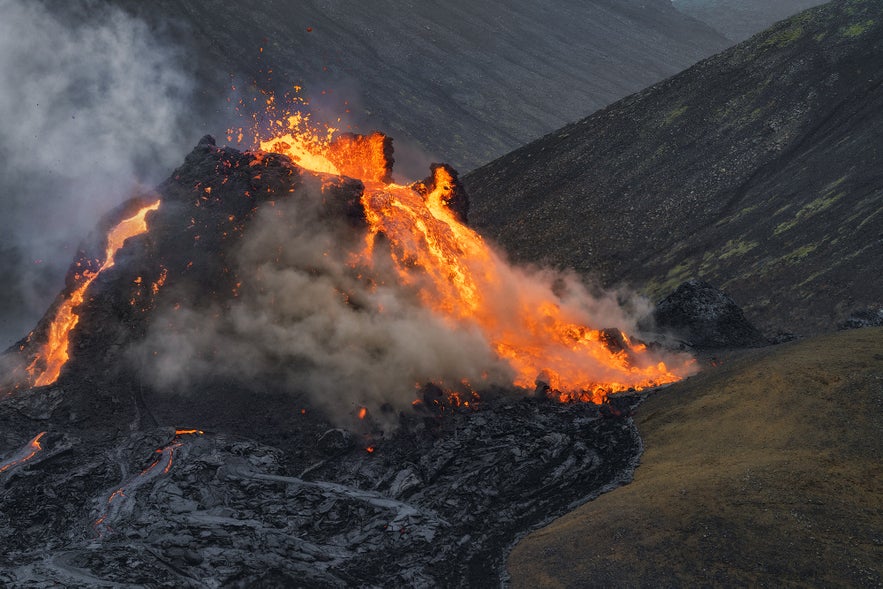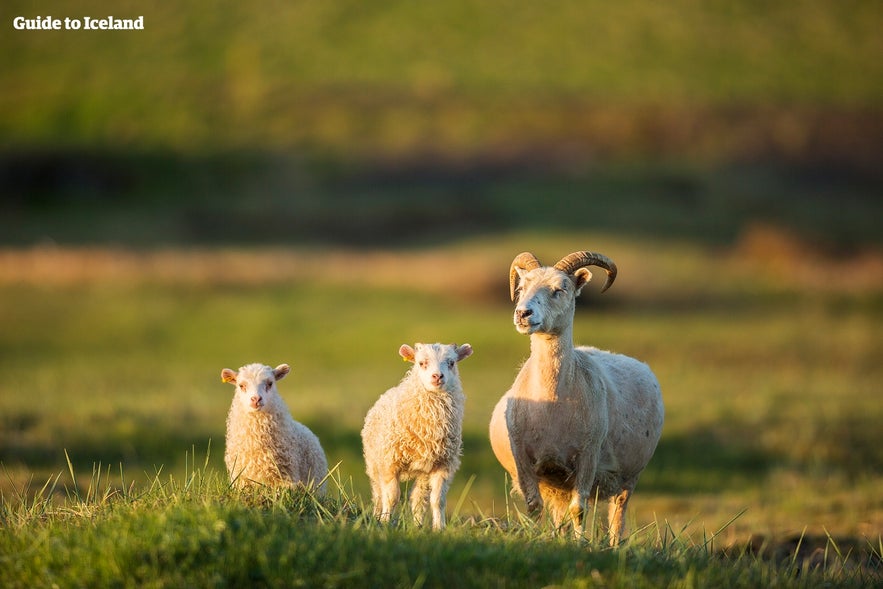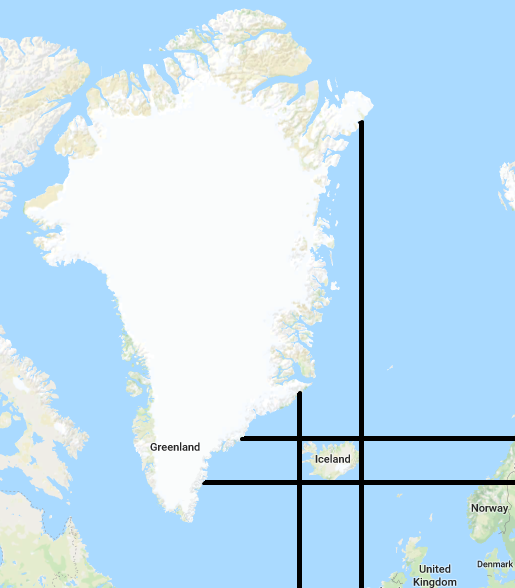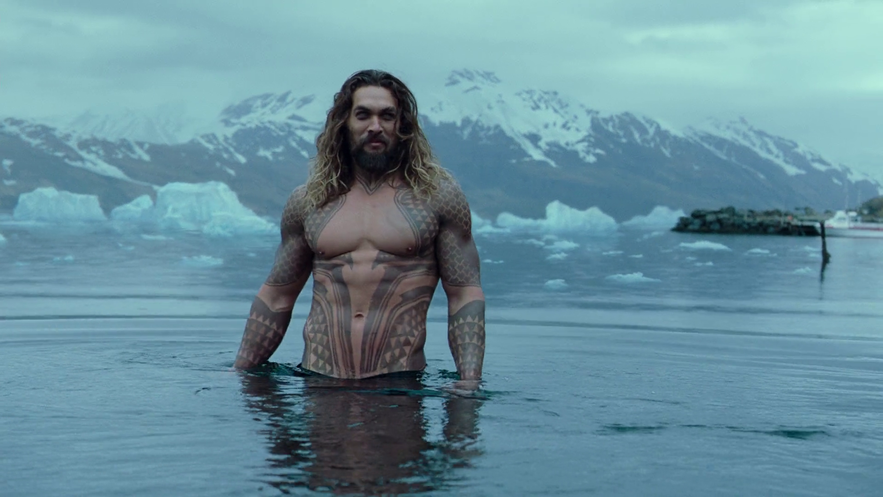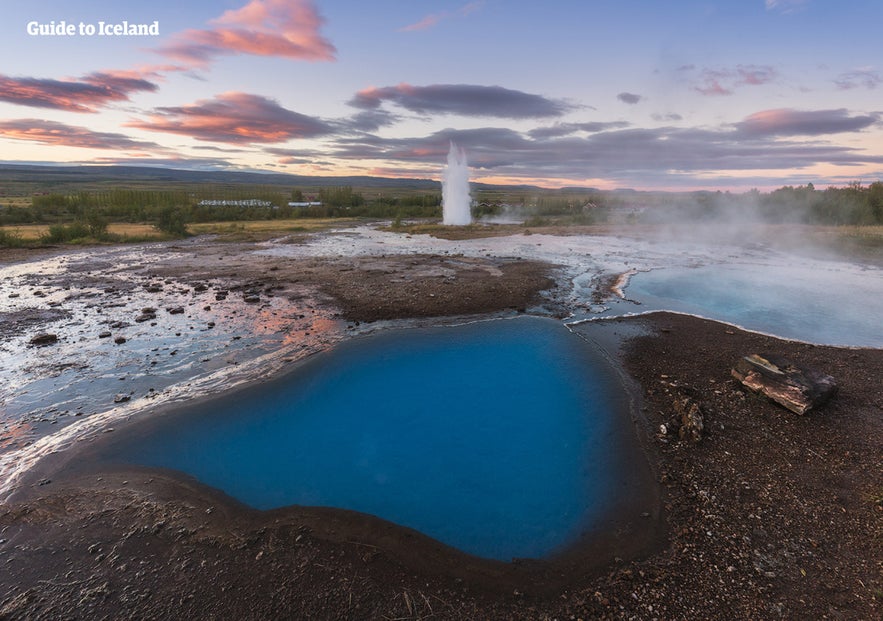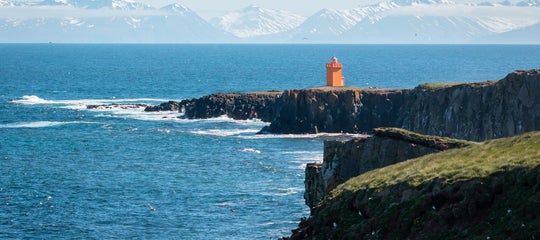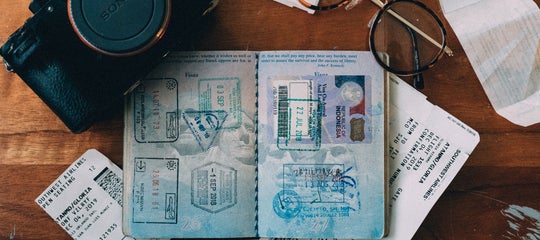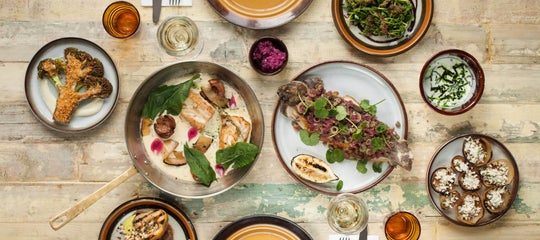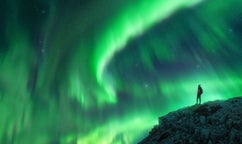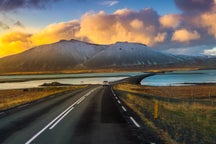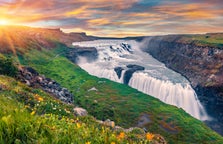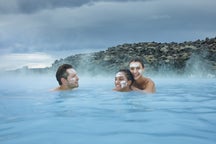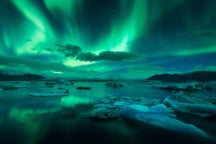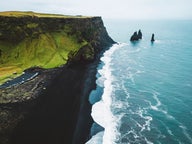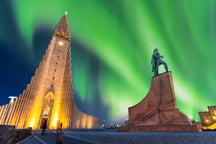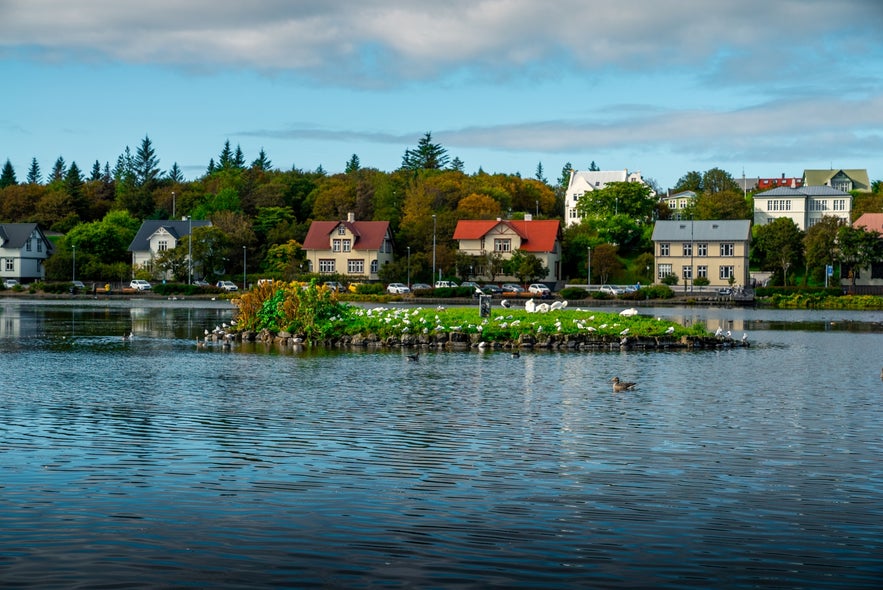
While there's a lot to see in Iceland, the small island in the North Atlantic has even more still than meets the eye! With plenty of records, historical trivia, and natural as well as cultural oddities, we want to share with you some of the most fun facts about the land of ice and fire!
As you embark on a self-drive tour around the island, you might want to know where to find Europe's most powerful hot spring, a buried treasure ship, or the supposed entrance to the center of the earth! Maybe your accommodation in Iceland is right next to a museum dedicated to an iconic part of the male anatomy?
Why You Can Trust Our Content
Guide to Iceland is the most trusted travel platform in Iceland, helping millions of visitors each year. All our content is written and reviewed by local experts who are deeply familiar with Iceland. You can count on us for accurate, up-to-date, and trustworthy travel advice.
Whether you're looking to load up on information to prepare for your trip to Iceland or simply wish to impress your coworkers with newfound trivia, we've put together a list of seventy-seven fun facts about Iceland that you can use at your discretion!
88 Fun Facts About Iceland
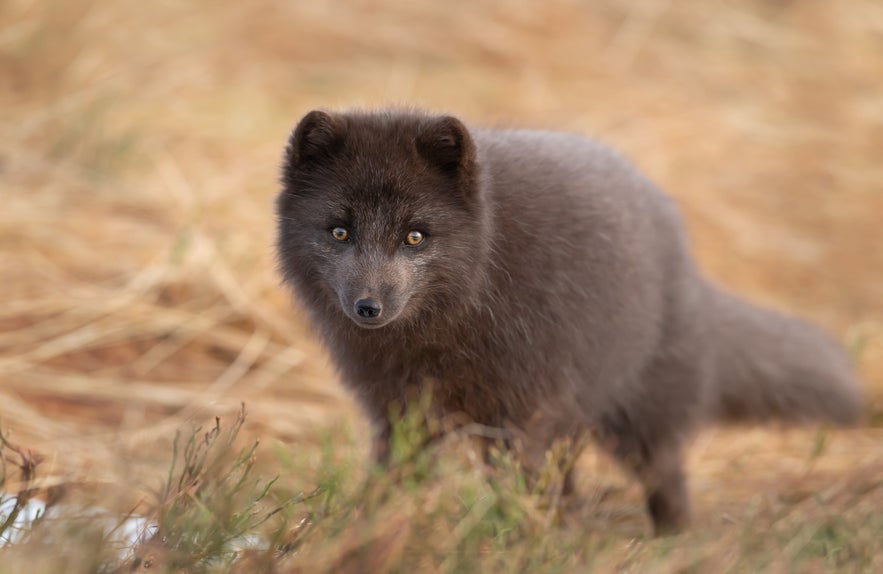
The Arctic Fox is Iceland's only native mammal.
Let's dive straight into some of the most fun facts about Iceland!
1. Iceland was settled in 874 AD
Iceland was first settled by Norse Vikings in the late 9th century. While several explorers sailed to the island, such as Raven-Floki, with the help of his ravens, the earliest recorded settlement was by Ingolfur Arnarson, dating back to 874 AD.
2. Iceland's parliament is the oldest in Europe
Althingi, Iceland’s parliament, was established in 930 AD and is considered to be the first parliamentary institution in Europe. It was originally located in Thingvellir but is now in the capital city of Reykjavik.
3. Iceland only has one native land mammal
The Arctic fox is the only land mammal native to Iceland, having colonized the island naturally after the last ice age. It is commonly seen in the Hornstrandir Nature Reserve in the Westfjords.
4. Iceland is not as cold as you might think
Due to the effects of the Gulf Stream, Iceland’s climate is milder than many believe. Winter temperatures typically range from around 30°F to 39°F (-1°C to 4°C) in coastal areas.
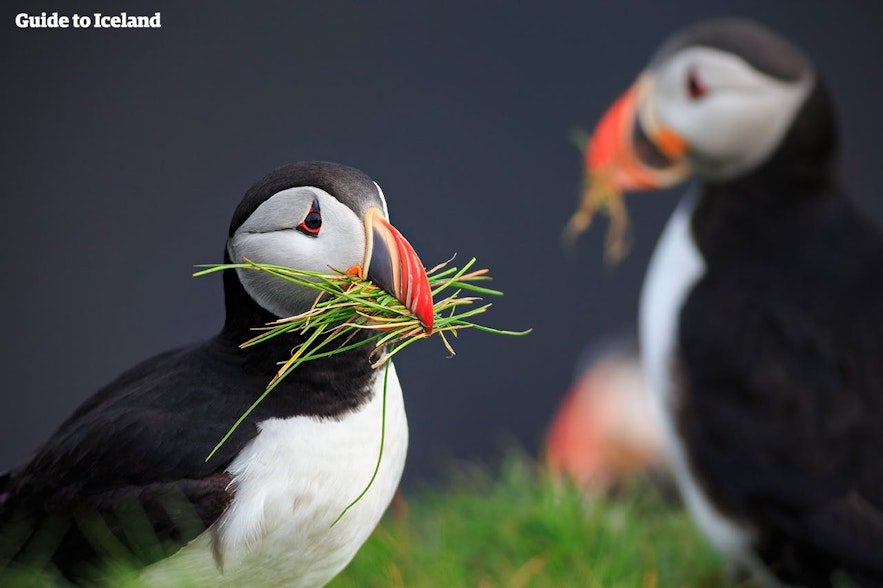
Puffins can be spotted in Iceland during summer.
5. The world's largest puffin colony is in Iceland
The largest puffin colony in the world is located in the Westman Islands (Vestmannaeyjar) of Iceland. This colony is home to millions of puffins during the breeding season and can be seen on tours of the Westman Islands.
6. The first European to reach North America was Icelandic
Leif Erikson, an Icelandic explorer, is believed to be the first European to reach North America around 1000 AD, preceding Christopher Columbus. He established a settlement called Vinland, likely in modern-day Newfoundland, Canada.
7. There are no mosquitoes in Iceland
There are no mosquitoes in Iceland due to its cold climate and the lack of suitable breeding habitats for these insects.
8. Iceland's tap water is very clean
Iceland has some of the cleanest tap water in the world, sharing the top spot of water quality with several other countries such as Finland and Switzerland.
From the 2021 eruption at Fagradalsfjall.
9. There are over 100 volcanoes in Iceland
Iceland is home to over 130 volcanic mountains, some of which are considered among the most active in the world. In the last four years, the Reykjanes Peninsula has had seven volcanic eruptions!
10. There are no polar bears in Iceland
Contrary to popular belief, there are no polar bears in Iceland. They do occasionally show up, however, after drifting on icebergs from Greenland to Iceland.
11. Iceland has no military
There is no standing army in Iceland, although the country was previously to a US Military Base in Keflavik.
12. The largest glacier in Europe is in Iceland
Vatnajokull Glacier, located in southeastern Iceland, is the largest glacier in Europe, covering an area of approximately 3,100 square miles (8,100 square kilometers).
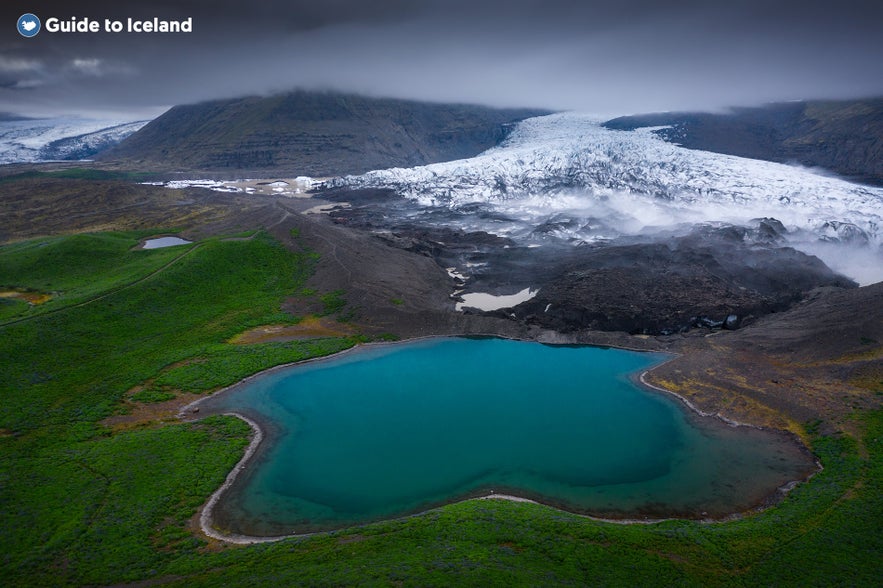
Vatnajokull is Europe's largest glacier.
13. A large portion of Iceland is covered by glaciers
While we're on the subject, approximately 11 percent of Iceland is covered by glaciers!
14. There are few forests in Iceland
On the other hand, only 2 percent of Iceland is covered by forests, unlike the other Nordic countries, which have vast expanses of woodland.
15. You can step inside a volcano in Iceland
Thrihnukagigur is a dormant volcano in west Iceland, famous for its enormous magma chamber. You can actually take a tour of Thrihnukagigur and take an elevator down the only magma chamber in the world that can be entered, with a depth of and has a depth of 699 feet (213 meters).
Icelandic sheep enjoying the sun.
16. Sheep roam free in Iceland in the summer
Icelandic sheep are traditionally allowed to roam freely in the summer months, grazing on open pastures and mountainous terrain. In the fall, they are gathered by farmers during the "réttir" (round-up) and brought back to lower pastures for winter.
17. Icelandic wool is unique
Icelandic sheep produce two types of wool: the "tog," which is a long outer coat with coarse fibers, and the "þel," which is a softer, shorter inner coat. This unique wool composition makes Icelandic wool ideal for a wide range of textiles and garments.
18. Icelandic people adore licorice
Licorice is quite popular in Iceland, although the most popular licorice is a saltier variant that can be found in many other countries.
19. Iceland has its own breed of horses
The Icelandic horse is unique for its sturdy build, thick mane and tail, and distinct fifth gait, called the "tölt." Bred in isolation for over a millennium, it's known for its strength, endurance, and gentle temperament. Ride one yourself on one of the many horse riding tours in Iceland!
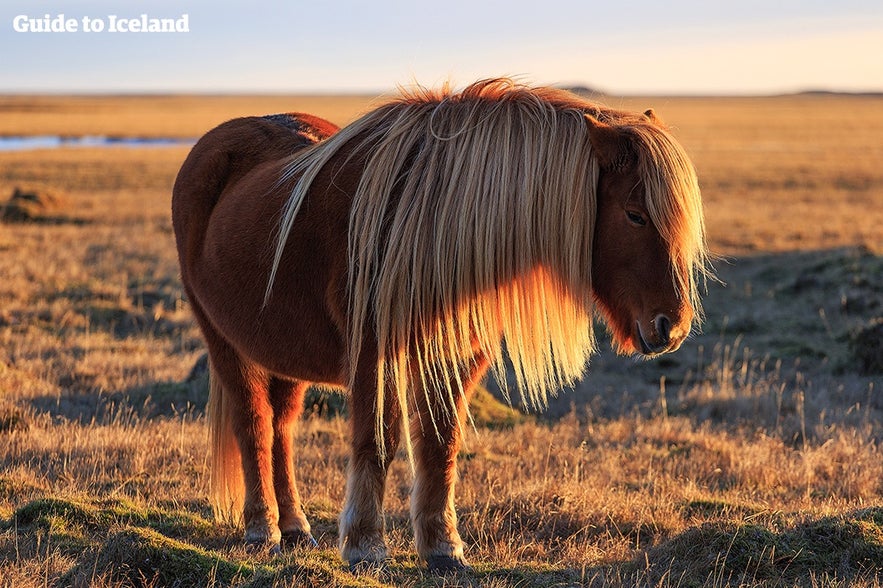
The Icelandic horse is known for its stocky build.
20. If Icelandic horses leave the country, they may not return
Once an Icelandic horse leaves Iceland, it is not allowed to return to the country. This measure is in place to preserve the breed's purity and prevent the introduction of diseases.
21. Iceland is home to some of the world's strongest people
Iceland has produced some of the strongest people in the world, particularly in the sport of Strongman competitions. Recently, Hafþór Júlíus Björnsson (known as "The Mountain" from Game of Thrones) has achieved international fame for his remarkable strength.
22. Iceland Is above the Mid-Atlantic Ridge
Iceland sits on the rift between the North American and Eurasian tectonic plates - a boundary known as the Mid-Atlantic Ridge. This is the primary reason for the country's high volcanic activity.
23. You can walk or swim between tectonic plates in Iceland
There are actually locations in Iceland where you can symbolically cross or go between the two tectonic plates. You can have a go at crossing the Bridge Between Continents or maybe take a snorkeling tour between continents in the Silfra fissure.
24. Icelandic people bake bread by burying it in the ground
There's a traditional method of baking bread called "hverabrauð" or "geothermal bread," where the dough is buried in the ground near hot springs or geothermal areas to bake slowly using natural heat. The result is a dense, moist, and slightly sweet bread with a unique flavor.
25. Iceland is the safest country in the world
According to the Global Peace Index, Iceland is the safest country in the world for the 14th year in a row.
26. Icelandic police don't carry guns
Police officers in Iceland typically don't carry firearms while on duty, but firearms are instead stored in locked compartments in patrol vehicles and are only issued in situations where there is a specific threat or need for armed response
27. Dogs were once banned in Reykjavik
In the early 20th century, there were restrictions on dog ownership in Reykjavik due to concerns about hygiene and public health. However, these restrictions were eventually lifted, and today, dogs are a popular sight in Reykjavik.
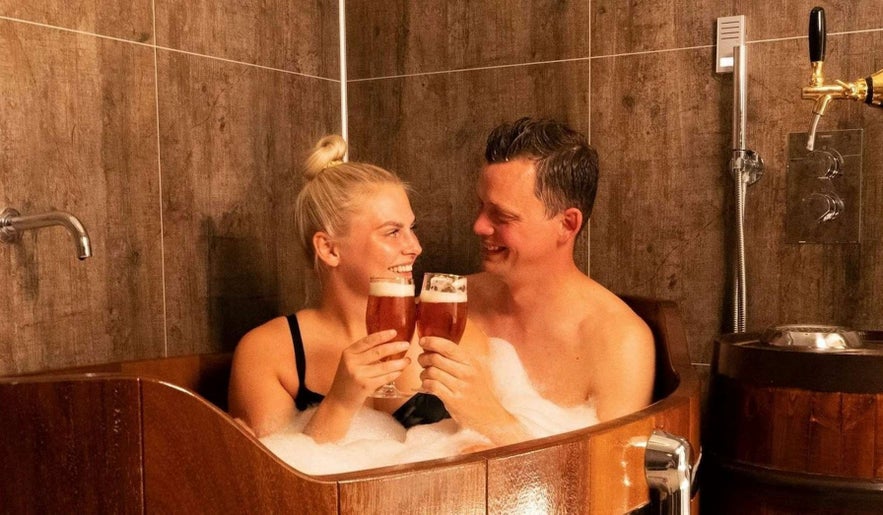 Have you ever bathed in beer?
Have you ever bathed in beer?
28. Iceland celebrates Beer Day
Beer was once banned in Iceland, a prohibition which lasted from the early 20th century to March 1st, 1989. The day has since been celebrated annually as Beer Day! If you want a once-in-a-lifetime beer experience in Iceland, try taking a 1-hour tour of the Bjorbodin Beer Spa!
29. Iceland has a special naming committee
You can't name your kid anything in Iceland - there's a committee responsible for approving or rejecting new given names for Icelandic citizens based on the Icelandic naming conventions and linguistic rules.
30. A small part of Iceland is in the Arctic Circle
The northernmost point of Iceland, which is called Grimsey Island, lies just above the Arctic Circle, making it the only part of Iceland that crosses into the Arctic Circle.
Way to overshadow us, Greenland!
31. Greenland is located further east, west, north, and south than Iceland
As strange as it may seem, Greenland indeed stretches further in every direction than Iceland! See the following picture for a demonstration.
32. There's a penis museum in Iceland
The Icelandic Phallological Museum, located in Reykjavik, houses a collection of penile specimens from various species, including humans.
33. There's a museum dedicated to witchcraft and sorcery in Iceland
The Icelandic Museum of Sorcery and Witchcraft is located in the town of Holmavik in the Westfjords region of Iceland. The museum explores the history of witchcraft, sorcery, and folklore in Iceland, featuring artifacts such as the necropants, which we don't recommend looking up!
Jason Momoa as Aquaman in the Justice League (2017).
34. Iceland is a popular filming location
Iceland is a popular location for film and television productions due to its unique and diverse landscapes, which can double for a wide range of settings, from otherworldly alien planets to rugged wildernesses. Examples of films shot here are Interstellar (2014), Prometheus (2012), and Fast & Furious 8 (2017).
35. The Icelandic language has its own unique letters
The Icelandic alphabet includes some unique letters not found in the English alphabet. These include Þ, Ð, Æ and Ö
36. The Icelandic language has changed little in the last 1000 years
Icelandic has retained many features of Old Norse, the language spoken by the Norse settlers who arrived in Iceland in the 9th and 10th centuries. As a result, modern Icelandic is still largely intelligible to speakers of Old Norse and has preserved much of its grammatical structure, vocabulary, and pronunciation over the centuries.
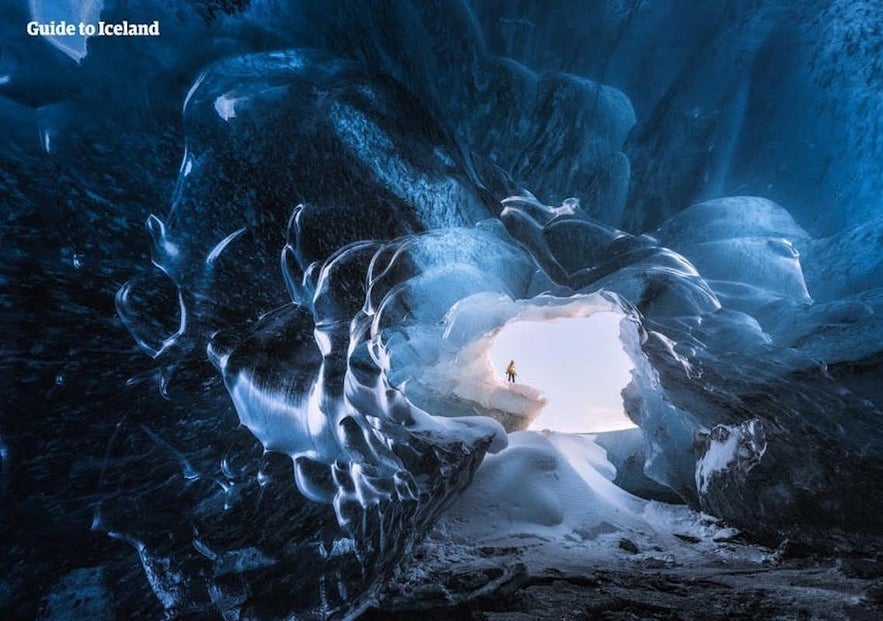
There are many ice caves to see in Iceland.
37. You can enter glacial ice caves in Iceland
There are several ice caves that form naturally within Iceland that can be visited on guided tours, such as the Katla ice cave tour, which explores stunning formations inside a glacier.
38. Iceland used to be ruled by Denmark
Iceland gained its independence relatively recently, only in 1944. Iceland was independent from its settlement until 1262. It used to be part of the Kingdom of Denmark, and Icelandic children still study Danish in schools.
39. Hot dogs are a big deal in Iceland
One of the main attractions in Reykjavik is the world's most famous hot dog stand. The most traditional condiments for hot dogs in Iceland are ketchup, mustard, remoulade, raw onions, and crispy fried onions.
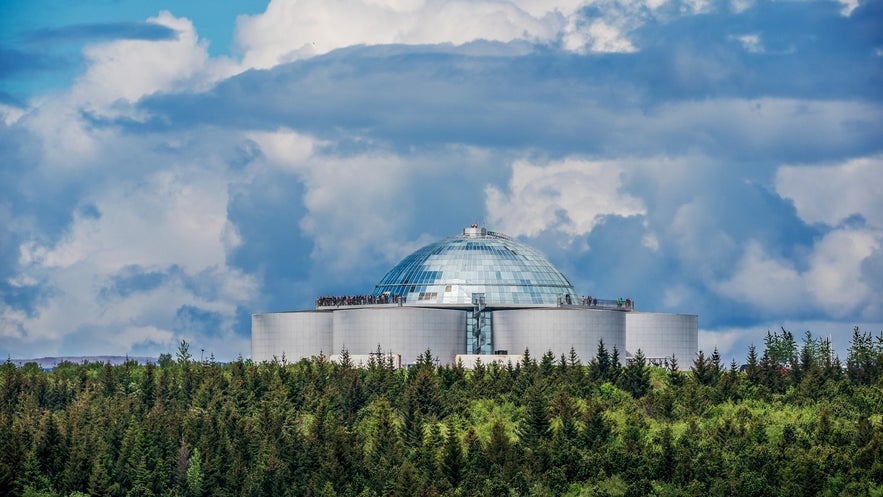
Perlan is one of Reykjavik's top attractions.
40. One of Reykjavik's attractions is on top of hot water tanks
There’s an interesting building called Perlan in Reykjavik, which is a large glass dome structure built atop hot water storage tanks. It now houses a museum, an observation deck, restaurants, and more.
41. Icelandic people love skyr
Skyr, the growingly popular dairy superfood, has been a traditional dairy product in Iceland for centuries. Similar to yogurt but with a thicker consistency, it's long been valued for its high protein content and nutritional benefits. You can learn all about skyr at the Skyrland exhibition in Selfoss.
42. Iceland's traditional food is weird
Icelanders have a tradition called "Þorrablót," where they eat traditional Icelandic foods like hákarl (fermented shark) and svið (boiled sheep's head).
43. There's an Icelandic protagonist in a popular anime series
The protagonist of the historical anime/manga series Vinland Saga follows the journey of Thorfinn, a young Icelandic man on a quest for revenge.
44. Lýsi is Iceland's secret to staying healthy
The best way Icelandic people know of to stay healthy is to take lýsi, a traditional health supplement made from cod liver oil.
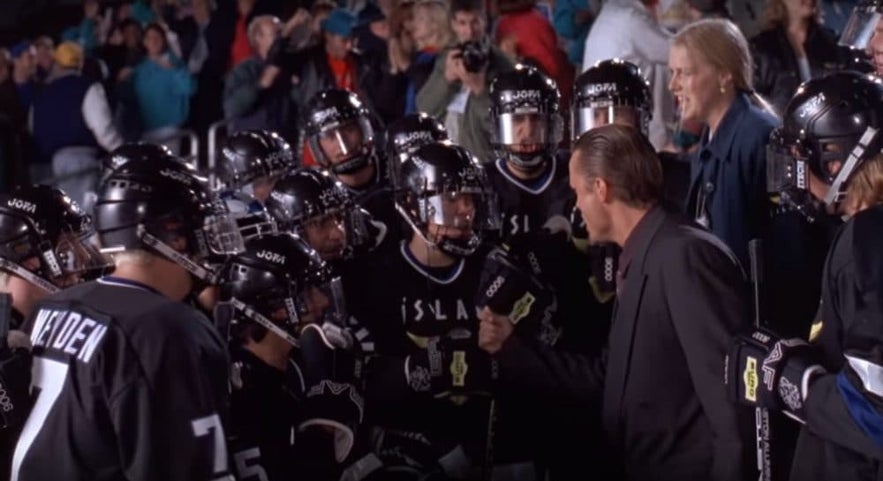
Team Iceland were the baddies in D2: The Mighty Ducks.
45. Ice hockey isn't a big deal in Iceland
Despite what D2: The Mighty Ducks may have led you to believe, ice hockey is not a big deal in Iceland. The largest team sport is actually soccer.
46. The largest battle in Iceland took place in 1238
The largest battle ever fought in Iceland is known as the Battle of Orlygsstadir, which took place in 1238 between roughly 2700 men. In 1988, a memorial was raised at the site of the battle.
47. Iceland was victorious in a conflict called the Cod Wars
Iceland was victorious over Britain in the Cod Wars - a series of disputes between Iceland and the United Kingdom over fishing rights in the North Atlantic in the late 1950s and the mid-1970s. There were no fatalities directly attributable to the conflicts.
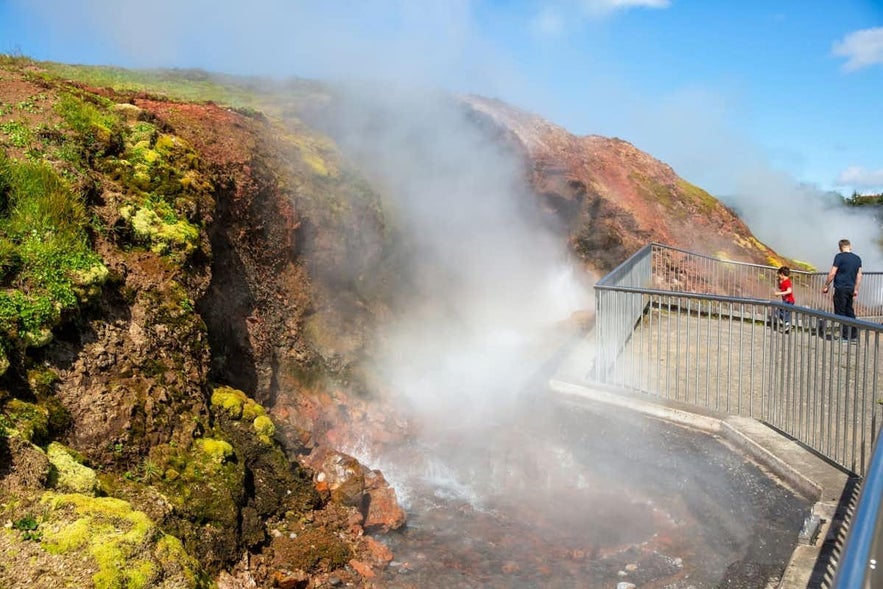
Deildartunguhver is Europe's most powerful hot spring.
48. Europe's most powerful hot spring is in Iceland
Deildartunguhver in West Iceland is regarded as the most powerful hot spring in Europe, with a flow rate of approximately 180 liters of boiling water per second at a temperature of around (207°F (97°C). We recommend grabbing a ticket to the relaxing Krauma spa, which is heated from the spring and located right next to it!
49. An Icelandic author won the Nobel prize
Halldór Laxness, one of Iceland’s most beloved authors, won the Nobel Prize in Literature in 1955.
50. A lot of books are published in Iceland
Iceland has one of the highest rates of book publishing per capita in the world. Roughly one in ten Icelanders will publish a book in their lifetime!

Vigdís Finnbogadóttir served as president from 1980 to 1996.
51. Iceland had the world's first democratically elected female president
Vigdís Finnbogadóttir became the world's first democratically elected female president when she was elected as the President of Iceland in 1980. She served as president for four consecutive terms until 1996.
52. Iceland had the world's first openly gay prime minister
Jóhanna Sigurðardóttir made history as Iceland's first female Prime Minister and the world's first openly gay head of government. She served as Prime Minister from 2009 to 2013.
53. The Yule Lads are Iceland's version of Santa
The Yule Lads are Iceland’s version of Santa Claus - mischievous brothers who visit children in the 13 days leading up to Christmas. Each has a distinct personality and brings either gifts or pranks, reflecting Icelandic Christmas traditions and customs.
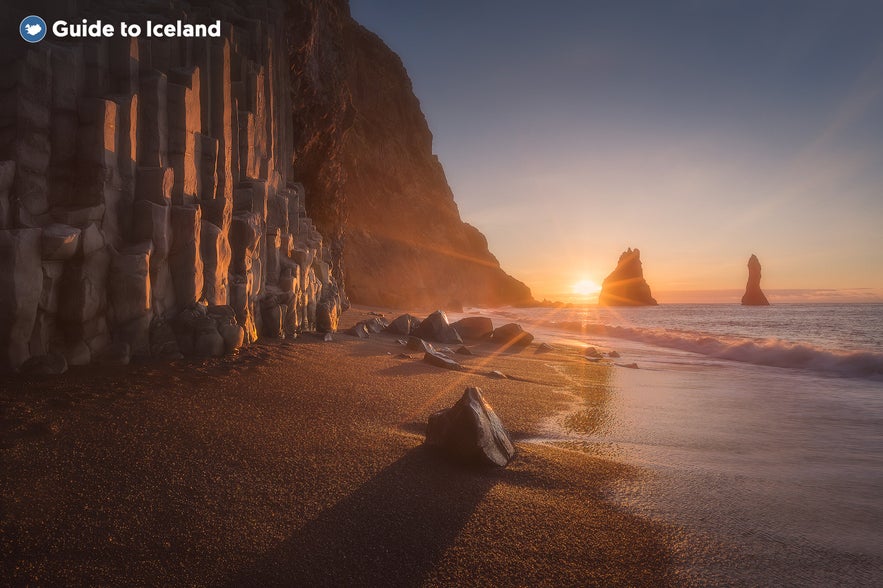
The black sands of Reynisfjara.
54. Most of Iceland's beaches are black
Most of Iceland’s beaches, such as the famous Reynisfjara, have black sand created by volcanic activity and the erosion of dark volcanic rock. White sand beaches are the exception in Iceland, not the rule!
55. The entry to the center of the earth is in Iceland?
Jules Verne wrote about Snaefellsjokull, a glacier-capped volcano located on the Snaefellsnes Peninsula, in his novel "Journey to the Center of the Earth. Verne depicted the glacier as the entrance to a passage leading to the center of the Earth.
56. The Great Auk went extinct in Iceland
The Great Auk was a flightless seabird native in the North Atlantic that went extinct in the mid-19th century due to overhunting. The last known pair was hunted in 1844 on the island of Eldey off the coast of Iceland.
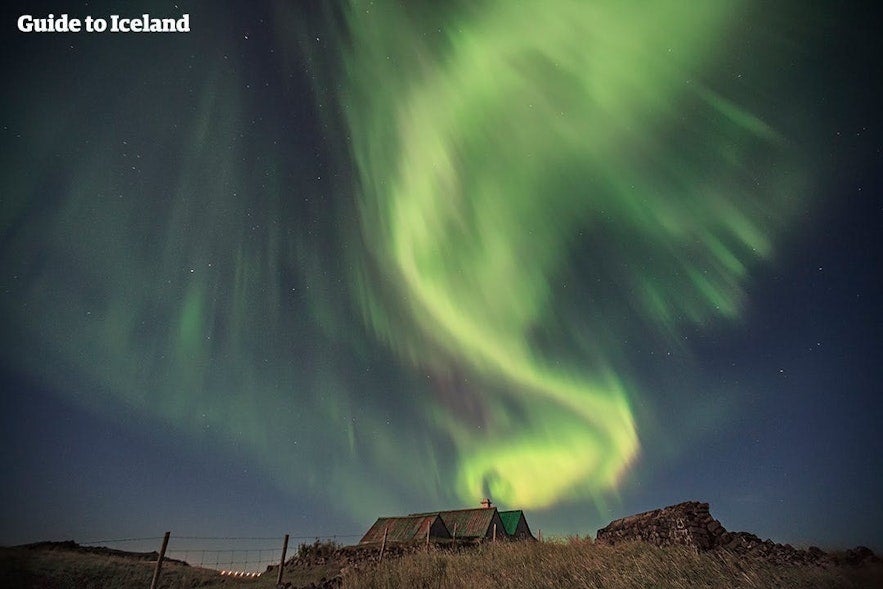
The northern lights make the dark winter days beautiful.
57. Winter days are very short in Iceland...
In winter, the days in Iceland can be quite short, especially in the northern parts of the country. In Reykjavik, for example, the shortest day of the year can have only about 4-5 hours of daylight!
58. ... but the summer days are very long!
Conversely, during the summer months, Iceland experiences the phenomenon of the midnight sun, where the sun remains visible for almost the entire 24-hour period!
59. Surnames are rare in Iceland
Most Icelandic last names follow the patronymic naming system, which traces their lineage through the father's first name, creating surnames such as "Jónsson" (son of Jón) or "Jónsdóttir" (daughter of Jón).
60. Iceland used to have outlaws
For centuries after Iceland was settled, people who violated the law could be declared outlaws and were banished from society. These outlaws had no legal protection and could be killed with impunity!
61. There are a lot of seals in Iceland
Seals are commonly spotted in Iceland, and reliably so at Ytri-Tunga beach on the Snaefellsnes Peninsula.
62. There's a botanical garden in North Iceland
The northernmost botanical garden in the world is the Akureyri Botanical Garden, situated at a latitude of approximately 65.7°N.
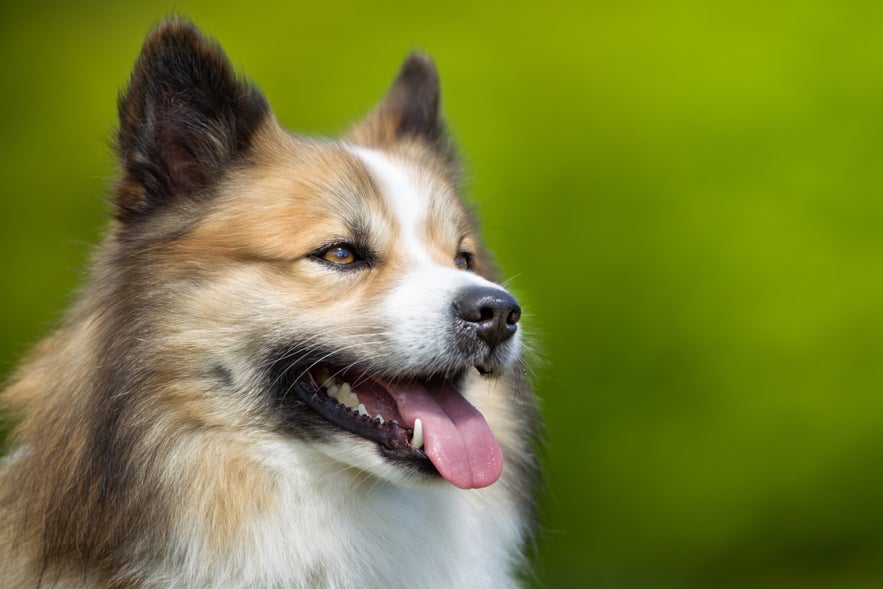
An Icelandic sheepdog.
63. Iceland has one native dog breed
The Icelandic Sheepdog is Iceland's only native dog breed and has been bred for centuries to help herd sheep in Iceland's rugged terrain.
64. Iceland was briefly ruled by a coup leader
A Danish man by the name of Jørgen Jørgensen briefly ruled Iceland. In 1809, during the Napoleonic Wars, he proclaimed himself "Protector of Iceland" and briefly established a government independent of Denmark. His rule was short-lived, lasting only a few weeks before he was captured and imprisoned by Danish authorities.
65. Iceland's energy is 90% green
Iceland is known for having one of the highest percentages of renewable energy use in the world. The country relies primarily on renewable energy sources such as geothermal and hydroelectric power for its electricity production and heating needs. Approximately 85-90% of Iceland's total energy consumption comes from renewable sources.
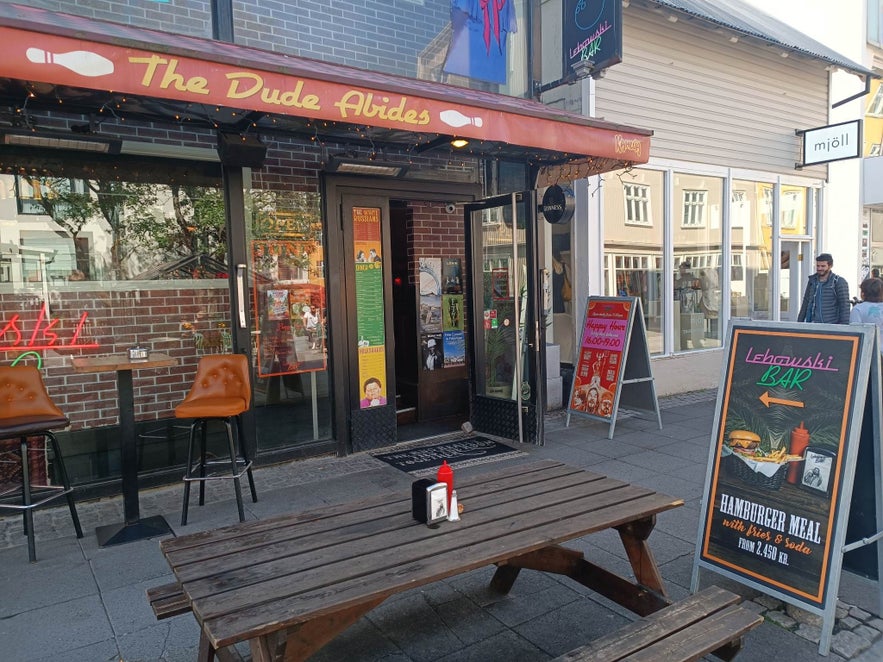
Lebowski Bar, Reykjavik.
66. There's a bar dedicated to a Coen brother's film in Iceland
The Lebowski Bar in Reykjavik is a unique locale dedicated entirely to the Coen Brother’s cult classic “The Big Lebowski”!
67. Hallgrimskirkja took over 40 years to build
Hallgrimskirkja, Reykjavik’s iconic church, took over 40 years to build. Construction began in 1945 but was not fully complete until 1986.
68. The windiest location in Europe is in Iceland
The Westman Islands aren't only home to puffins but also the windiest location in all of Europe, Storhofdi.
69. You can bathe in hot rivers in Iceland
Some rivers in Iceland are hot due to geothermal activity, such as the ones found in the steam valley of Reykjadalur, where you can even take a dip in the river!
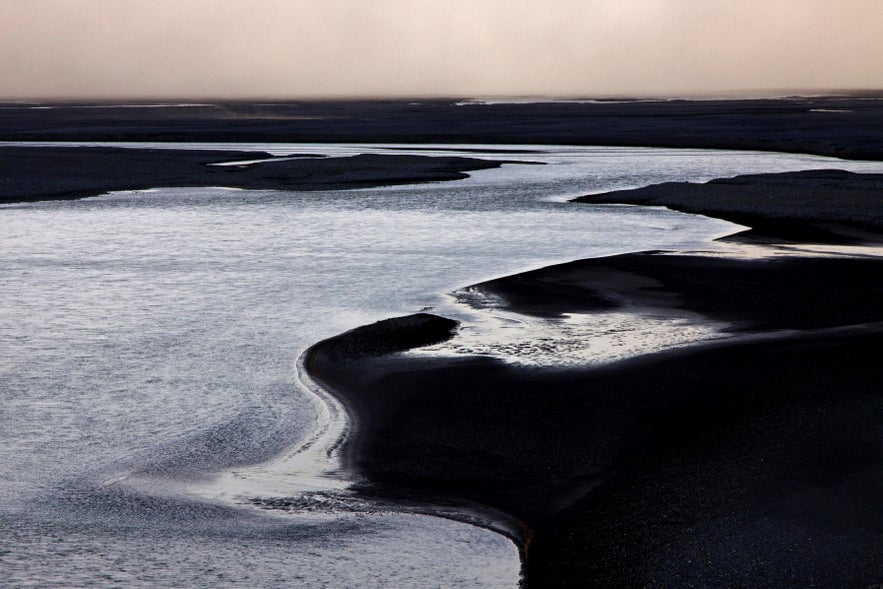
No one has found the treasure of Het Wapen Van Amsterdam yet.
70. There’s a lost treasure ship along Iceland’s South Coast
A Dutch merchant ship called Het Wapen Van Amsterdam was caught in a fierce storm and stranded on Iceland's South Coast in 1667, carrying gold, jewels, and other treasures aboard. Many have tried to find the wreck and its treasures using modern technology, but no one has found it yet!
71. Appollo astronauts trained in Iceland to prepare for the moon landing
In 1965 and 1967, NASA sent two groups of astronauts to Iceland for geology field training to prepare for the moon landing. Iceland was chosen as it had the most moon-like field areas for the astronauts to prepare themselves. Among the trainees was the first man on the moon himself, Neil Armstrong.
72. Iceland has the tallest man-made land structure in Europe (outside Russia)
The longwave radio mast at Hellissandur stands at a towering 1,352 feet (412 meters), making it the largest man-made land structure in Europe outside of Russia.
73. Iceland was the inspiration for the popular board game Settlers of Catan
The Settlers of Catan is one of the world's most popular board games. Klaus Teber, the game's creator, was inspired by the history of Viking settlers in Iceland when he began designing the game.
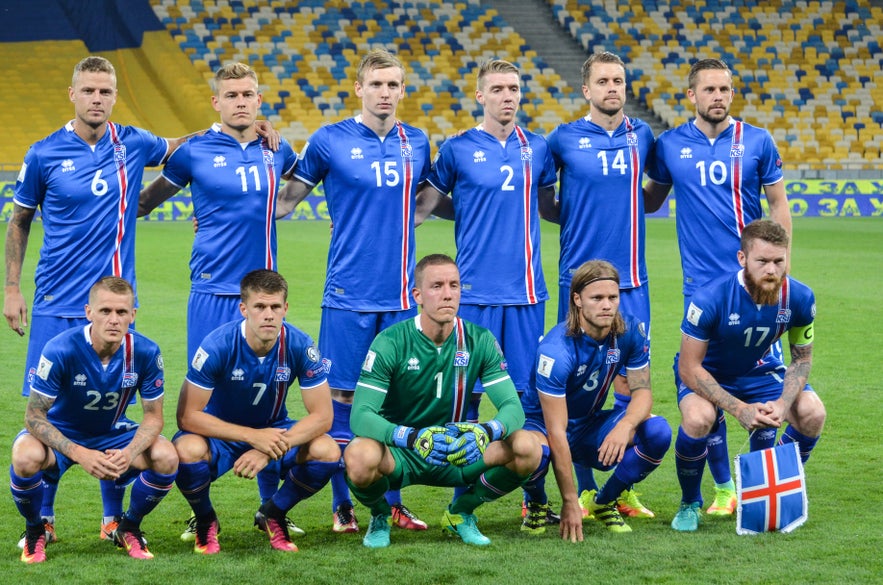
The 2016 Icelandic football team.
74. Iceland is the smallest nation to compete in the FIFA World Cup
Iceland holds the distinction of being the smallest nation to compete in the FIFA World Cup, surpassing Trinidad and Tobago as the smallest FIFA World Cup qualifier by over a million people. Not only that, Iceland even managed a draw 1-1 against the formidable Argentina in the group stage, with the Icelandic goalkeeper Hannes Þór Halldórsson defending a penalty shot from Lionel Messi.
75. Reagan and Gorbachev met in Reykjavik in 1986 to end the Cold War
Ronald Reagan, the President of the United States, and Mikhail Gorbachev, the General Secretary of the Communist Party of the Soviet Union, met in Reykjavik on October 11th-12th in discussions that paved the way for negotiations and treaties between the two superpowers.
76. A new island off the coast of Iceland was formed in 1967
During a long underwater volcanic eruption that lasted between 1963 and 1967, a brand-new island was formed near Vestmannaeyjar, with a size of about 1 square mile (2.7 square kilometers), but it has eroded somewhat in the last few decades. The island was named Surtsey, after the giant Surtr from Norse mythology, who carries a blade made of fire. Quite fitting for a volcanic island!
77. The "Match of the Century" in chess took place in Iceland
Bobby Fischer and Boris Spassky famously played their World Chess Championship match in Reykjavik, Iceland, in 1972. This match, known as the "Match of the Century," was highly anticipated and received widespread media attention due to the intense Cold War rivalry between the United States and the Soviet Union.
78. Reykjavik is the northernmost capital in the world
Reykjavik is located at approximately 64°08' N latitude, making it the northernmost capital city of a sovereign state.
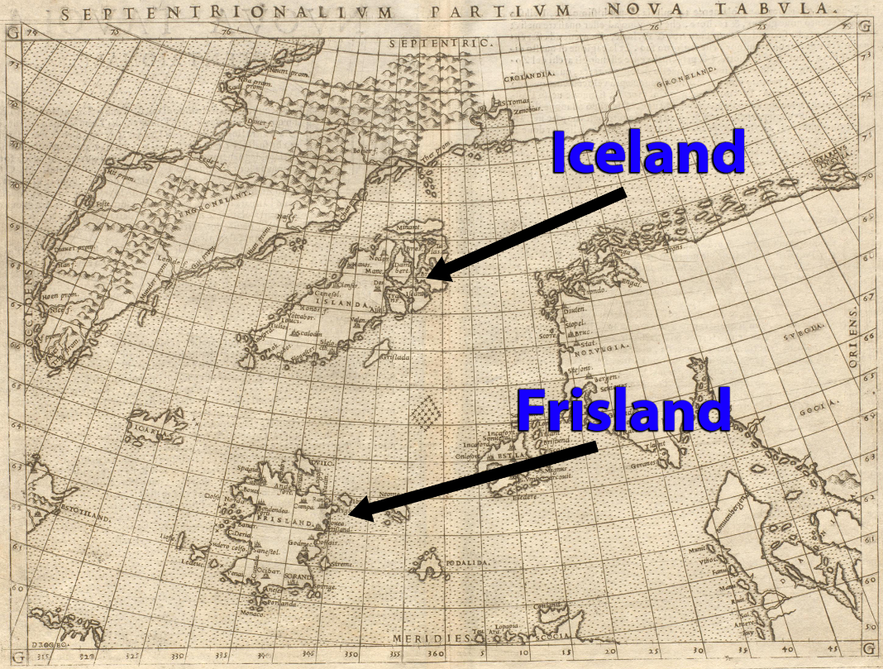
79. A "phantom island" appears near Iceland in maps from 1560-1660
Before satellite imaging, all maps had to be drawn by hand, sometimes relying on inaccurate information provided to the cartographer. For some reason, an island that doesn't exist, called Frisland, was consistently depicted near Iceland for a period of time.
80. Polar bears sometimes drift to Iceland from Greenland
It is a popular misconception that polar bears are native to Iceland, they are not. However, occasionally, a straggling polar bear on a floating iceberg drifts from Greenland to Iceland's shores. The polar bears are usually confused and hungry when they arrive, which causes danger to Iceland's livestock (and people!), so the polar bears need to be put down immediately by local rescue teams. The last time a polar bear drifted to Iceland was in 2008.
81. Irish monks may have lived in Iceland before the Vikings
While Iceland was first permanently settled in 874 by Ingólfur Arnarson, with many settlers arriving from Scandinavia in the following decades, old chronicles speak of Irish monks, the "Papar," who lived in Iceland to worship in solitude. While no archeological remains 100% confirm their existence, their mark remains in some Icelandic place names, such as the island of Papey.
81. There were no television broadcasts on Thursdays until 1986
For the longest time, there was only one television station in Iceland, the state-run national broadcast station RÚV. RÚV did not broadcast anything on Thursdays and took the entire month of July off until 1986. Plenty of time to go outside and enjoy the outdoors, right?
82. The English word "geyser" derives from the hot spring Geysir
Iceland is well-known for its geothermal activity, with its many hot springs and geysers across the country. The English word "geyser" dates back to the late 18th century and comes directly from the famous Geysir, located on the Golden Circle. The word means "the one who gushes," making it a fitting namesake for all geysers.
83. Iceland was the first to recognize the independence of nine countries
Iceland fought long and hard for its independence which it finally gained in 1944, which is celebrated every year on June 17th. Therefore, when other countries declare their independence, Iceland is often the first to formally recognize it on the global stage. This is the case for the countries of Lithuania, Estonia, Latvia, Croatia, Slovenia, Montenegro, Georgia, Armenia and Azerbaijan. Some of these countries are grateful for Iceland's bold stance to this day, with streets and squares named after Iceland in their capitals, such as the lively Islandijos street in Vilnius, Lithuania.
84. Iceland used to be forested "from shore to mountain"
While forests only cover about 2% of Iceland's land area today, it used to be a lot more! In the medieval chronicle Landnáma, which describes in detail the settlement of Iceland, it is remarked that before humans arrived in Iceland, it was forested "from shore to mountain." While that may have been an exaggeration, geologists estimate that Iceland was forested between 8-40%. Most trees were cut down to build ships and houses by the early settlers.
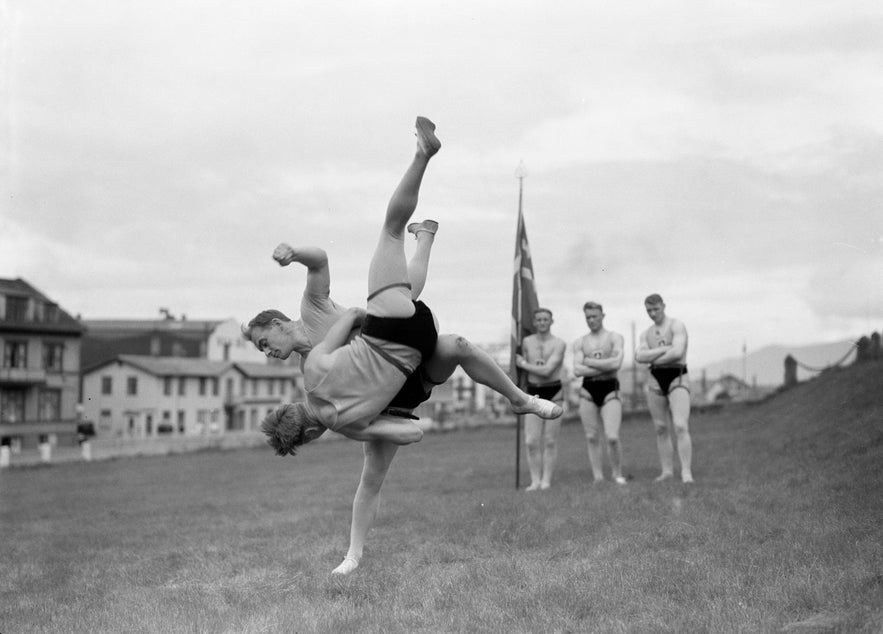
Two wrestlers in a hard-fought match of glíma in Reykjavik, 1934.
85. The national sport of Iceland is glíma, a type of wrestling
Glíma is a sport that dates all the way back to the first settlers of Iceland and still remains. It's sometimes called trouser-grip wrestling, as each wrestler grabs the belt of the opponent with both hands, and then the wrestlers try to trip each other using their feet and core strength. The wrestler that manages to put his opponent to the ground wins. The most famous wrestler in Iceland's history was Jóhannes Jósefsson, who traveled the world with the Barnum & Bailey circus, doing all sorts of strongman stunts such as wrestling bears and fighting three men at once. He returned to Iceland as a wealthy man and opened Hótel Borg in 1930.
86. The killer whale in the Free Willy movies was Icelandic
The famous killer whale Keikó, known for his performance in the Free Willy movies, which were popular in the 1990s, was originally caught in Icelandic waters and then brought to the USA. After his last movie, he was brought back to Iceland to live in a large enclosed area in the sea by the Westman Islands. This area is now used for beluga whales, which you can visit on a tour of the SEA LIFE Trust Beluga Whale Sanctuary.
87. Iceland has a special breed of sheep called "leader sheep"
Sheep are not known to be leaders, but some Icelandic sheep break that stereotype! The leader sheep is considered a subpopulation of the Icelandic sheep as only a small percentage show its special qualities. For over 1100 years, these leader sheep have been known to be able to predict the weather and lead the flock away from danger, as well as lead the group toward grazing grounds. You can learn more about this intelligent breed of sheep at the Study Centre for Leader Sheep.
88. The letter Z was abolished from the Icelandic alphabet in 1973
The letter Z used to be part of the Icelandic alphabet, but no more! While it had special grammatical rules regarding the use of Z instead of S, the Department of Education decided to unilaterally abolish the letter from the alphabet on September 6th, 1973. People were still allowed to use it, of course, and some do to this day. Therefore, when you see the letter Z somewhere in Iceland, it usually indicates that it's from a long time ago, such as the famous hot dog stand Bæjarins Beztu Pylsur, which still uses the letter in its name as it was established in 1930 and has retained its original name since.
Those are some of our favorite facts about Iceland. Do you have one to add to the list? Did any of our facts surprise you? Let us know in the comments!

